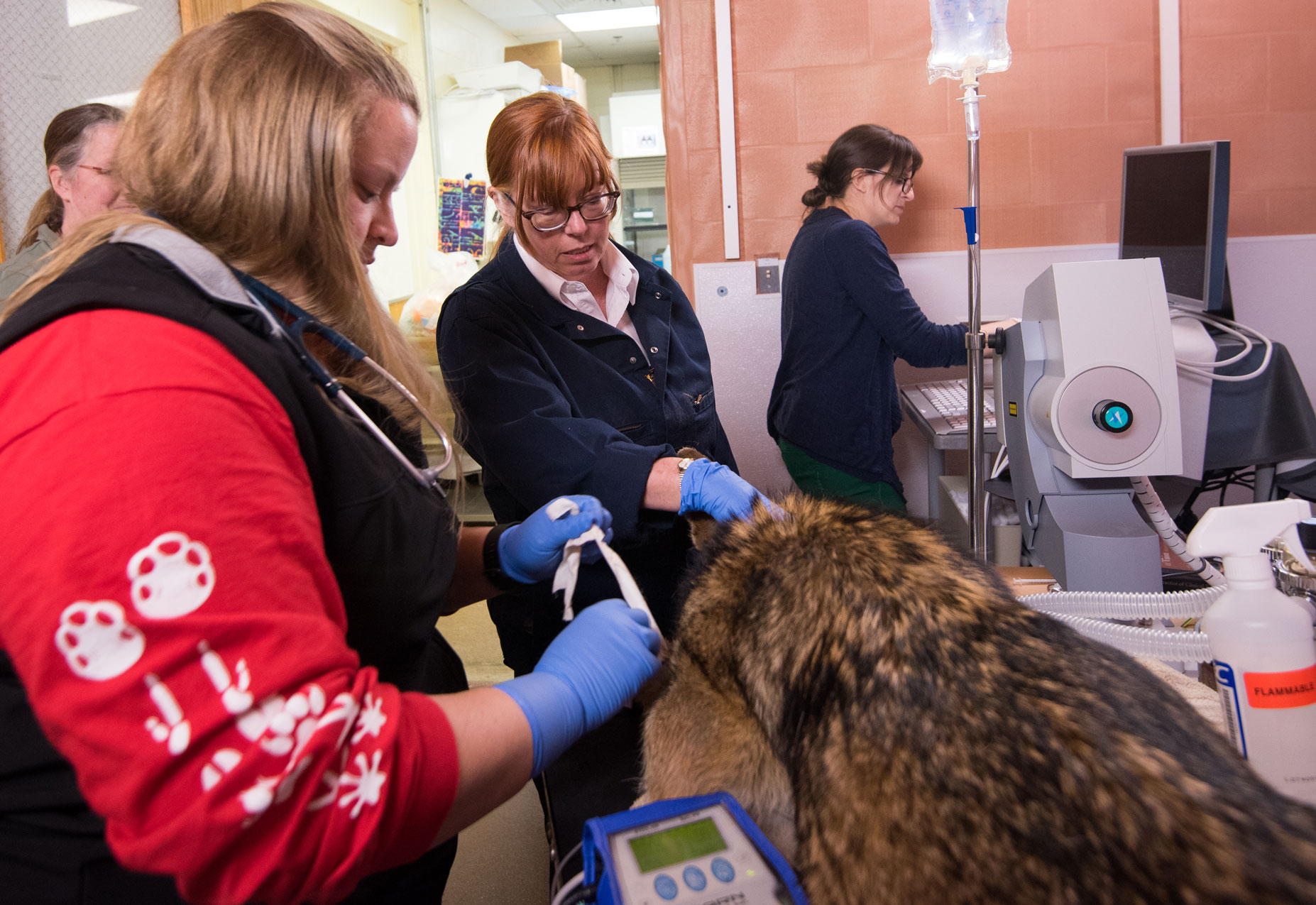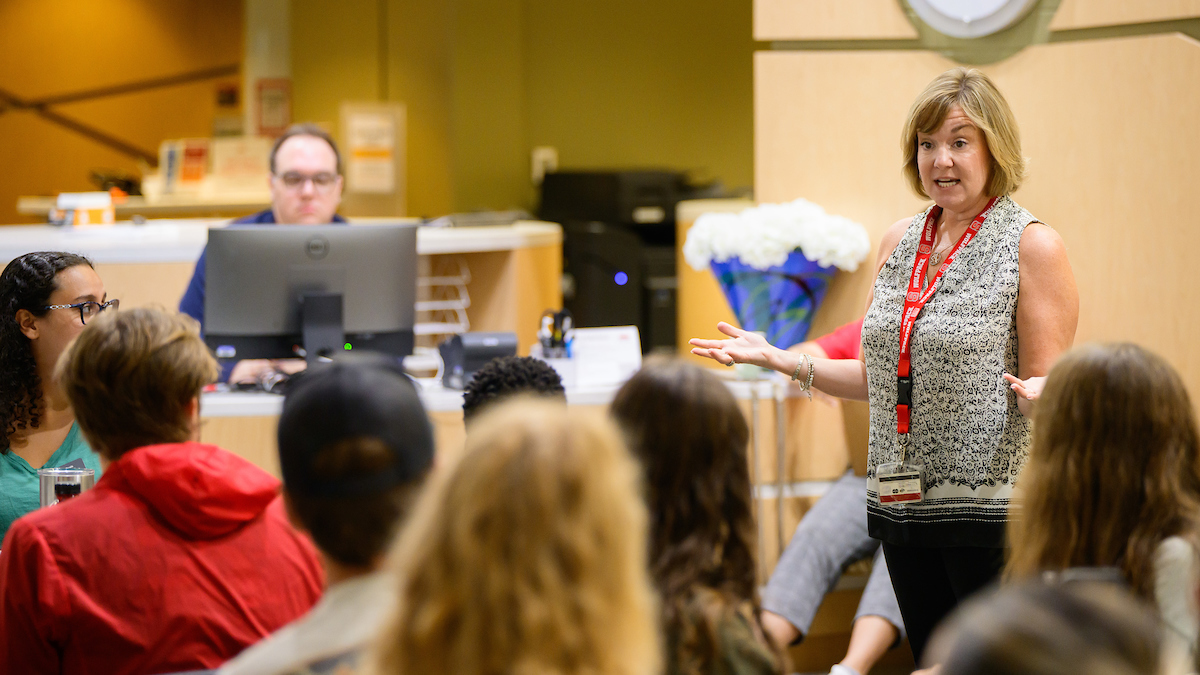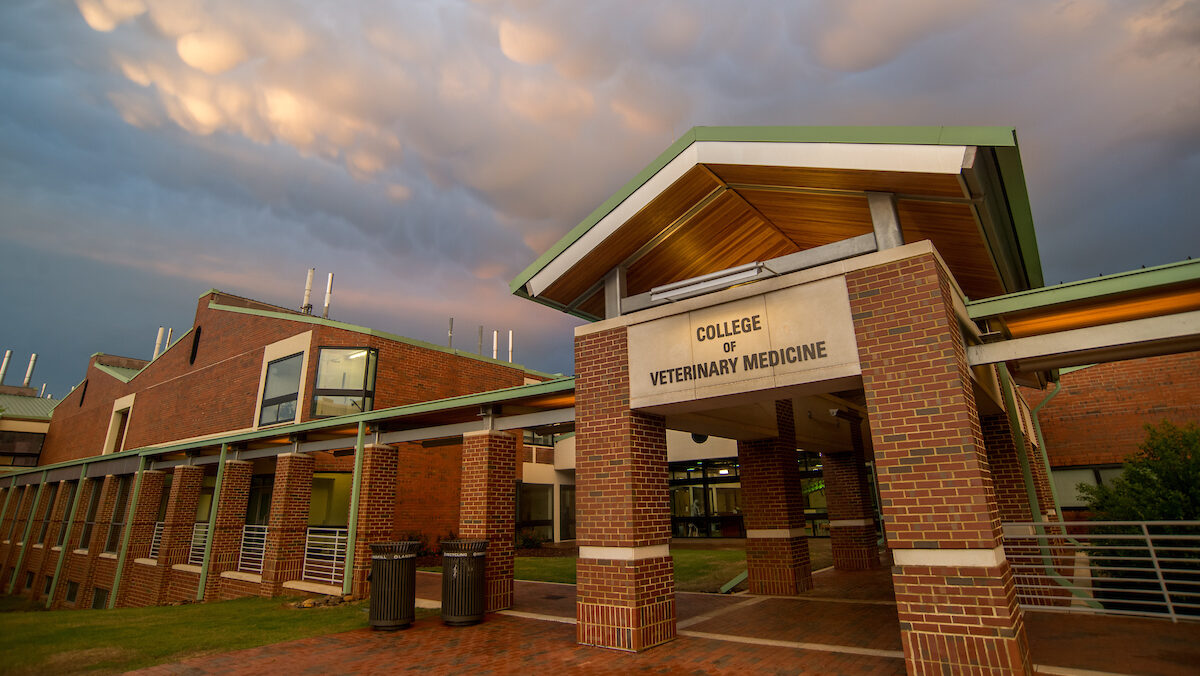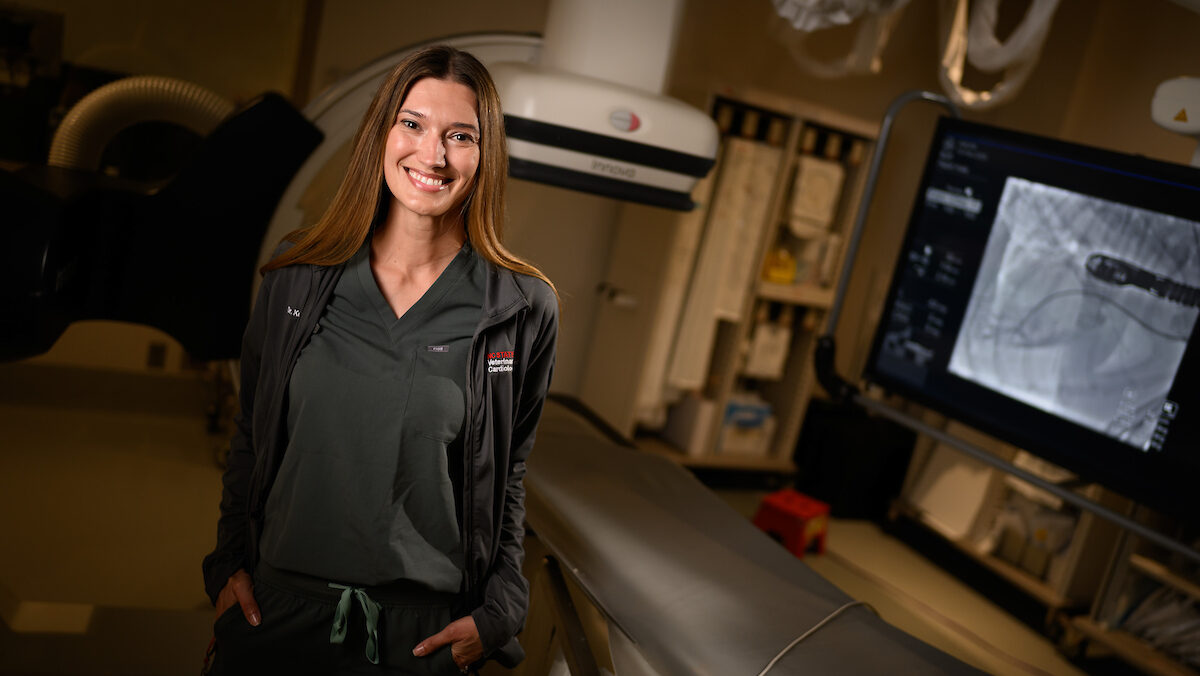ACZM Presents Kennedy-Stoskopf with Lifetime Achievement Honor

Suzanne Kennedy-Stoskopf, research professor of wildlife and ecosystem health at the NC State College of Veterinary Medicine, has received the American College of Zoological Medicine’s lifetime achievement award.
The award recognizes those who have made an extraordinary commitment to the ACZM and significant contributions to zoological medicine. The award is named for Murray Fowler, widely recognized as the father of zoological medicine, who was an invaluable mentor to generations of veterinarians and a founding member of the ACZM. Fowler, who died in 2014, launched the first zoological medicine program in the world in 1967 while at the University of California-Davis.
He also worked closely with Kennedy-Stoskopf. Since 1983, she said, she and Fowler have been the only ACZM representatives to the American Board of Veterinary Specialties and were both dedicated to integrating zoological medicine into professional veterinary education.
“It was important for Murray and me that zoological medicine in its broadest context be accepted and respected by other specialty colleges,” said Kennedy-Stoskopf. “The ACZM is not just a specialty that sees a variety of species, but a discipline that sees these diverse species in their native habitats, in zoos and aquariums, and in private practice as pets.”
Shortly after receiving the lifetime achievement award, Kennedy-Stoskopf was also given the Emil Dolensek Award from the American Association of Zoo Veterinarians, honoring conservation efforts for zoo animals and free-ranging wildlife.
Kennedy-Stoskopf joined the CVM faculty in 1990 as an associate research professor in the former microbiology, parasitology and pathology department, later becoming a research professor position in the department of population health and pathobiology. In 2007, she joined the CVM’s department of clinical sciences. She is also a research professor with NC State’s fisheries, wildlife and conservation biology program, an intercollegiate degree program administered by the CVM, the College of Natural Resources and the College of Agriculture and Life Sciences.
Her research primarily focuses on infectious diseases. Kennedy-Stoskopf’s published works and case reports explore everything from bone lesions in tree kangaroos and heartworms in Bengal tigers to tracking pathogens in feral pigs in North Carolina and hypothermia in Atlantic Coast sea turtles. Her husband, Michael Stoskopf, is a fellow CVM professor of aquatics, wildlife and zoo medicine.
 Kennedy-Stoskopf received her DVM at Michigan State University before serving for two years as a Smithsonian Fellow at the National Zoological Park in Washington. She then was an assistant professor at the University of Tennessee College of Veterinary Medicine while serving as head veterinarian at the Knoxville Zoological Park.
Kennedy-Stoskopf received her DVM at Michigan State University before serving for two years as a Smithsonian Fellow at the National Zoological Park in Washington. She then was an assistant professor at the University of Tennessee College of Veterinary Medicine while serving as head veterinarian at the Knoxville Zoological Park.
In 1981, she began her Ph.D. work at the Johns Hopkins University’s department of immunology and infectious disease and began a seven-year term as a clinical associate veterinarian at the National Aquarium in Baltimore. While in Baltimore, she was also an assistant professor of comparative medicine and a post-doctoral fellow in neurovirology at Johns Hopkins.
She has particularly valued her experiences with veterinary students at the CVM with strong interest in zoological medicine, mentoring dozens of graduate students and residents in zoological medicine. Among the residents Kennedy-Stoskopf mentored JB Minter, now chief veterinarian at the North Carolina Zoo, and Craig Harms, CVM professor of aquatics, wildlife and zoo medicine and the director of the marine health program at NC State’s Center for Marine Sciences and Technology.
For more information on the ACZM and the AAZV, go to aczm.org and aazv.org.
- Categories:


